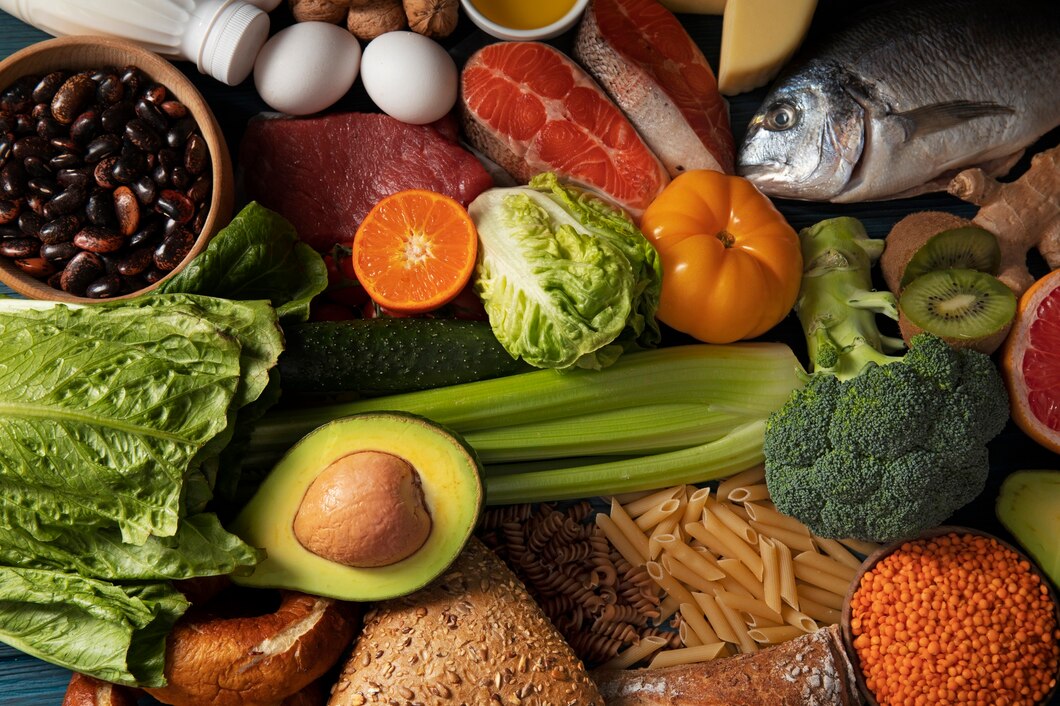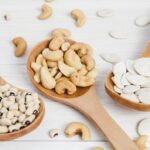Managing blood sugar levels is crucial for individuals with diabetes or those at risk of developing the condition. A balanced diet rich in nutrient-dense, low-glycemic foods can help regulate blood sugar and improve overall health. Here’s a list of 20 foods South Africans should incorporate into their diets to help lower blood sugar levels naturally.
1. Avocados
Avocados are rich in healthy fats and low in carbohydrates, which help stabilize blood sugar levels. Their fiber content also slows digestion, preventing sugar spikes.
2. Leafy Greens (Spinach, Kale)
Leafy greens like spinach, kale, and collard greens are low in calories and carbohydrates while being high in fiber, vitamins, and minerals. They are excellent for keeping blood sugar levels in check.
3. Sweet Potatoes
Sweet potatoes are a lower-glycemic alternative to regular potatoes, providing slow-releasing carbohydrates that help regulate blood sugar without causing sudden spikes.
4. Nuts (Almonds, Walnuts, Peanuts)
Nuts are rich in fiber, protein, and healthy fats, which help stabilize blood sugar levels. They also help reduce inflammation and insulin resistance.
5. Fatty Fish (Salmon, Mackerel, Sardines)
Fatty fish like salmon, mackerel, and sardines are packed with omega-3 fatty acids, which improve insulin sensitivity and reduce inflammation, helping lower blood sugar levels.
6. Berries (Blueberries, Strawberries, Blackberries)
Berries are low in sugar and high in fiber and antioxidants, making them a great choice for managing blood sugar. Their natural sweetness makes them a perfect snack or addition to meals without spiking blood sugar.
7. Chia Seeds
Chia seeds are rich in fiber and omega-3 fatty acids, helping to slow down the absorption of carbohydrates and regulate blood sugar levels. They can easily be added to smoothies, salads, and yogurt.
8. Oats
Oats contain a type of fiber called beta-glucan, which helps slow digestion and reduce post-meal blood sugar spikes. Opt for steel-cut or rolled oats over instant varieties to maximize the benefits.
9. Beans (Lentils, Chickpeas, Black Beans)
Beans are high in fiber and protein, which slow the absorption of sugar and help manage blood glucose levels. They also have a low glycemic index, making them ideal for those with diabetes.
10. Greek Yogurt
Greek yogurt is a good source of protein and probiotics, which can help improve blood sugar control and digestive health. It is lower in carbohydrates than regular yogurt and can be enjoyed with low-glycemic fruits like berries.
11. Cinnamon
Cinnamon has been shown to improve insulin sensitivity and lower blood sugar levels. Adding it to your meals or beverages, such as coffee or tea, can be a simple way to support blood sugar regulation.
12. Garlic
Garlic may help reduce blood sugar levels and improve insulin sensitivity. It can be added to many dishes to enhance flavor while offering health benefits.
13. Whole Grains (Brown Rice, Quinoa, Barley)
Whole grains like brown rice, quinoa, and barley are rich in fiber and have a lower glycemic index than refined grains. They help slow down the release of sugar into the bloodstream.
14. Eggs
Eggs are a great source of protein and low in carbohydrates, making them an excellent option for people looking to control their blood sugar. They help you feel full for longer, preventing overeating and sugar spikes.
15. Apple Cider Vinegar
Apple cider vinegar has been found to help improve insulin sensitivity and lower blood sugar levels after meals. It can be incorporated into salads or diluted in water as a health drink.
16. Flaxseeds
Flaxseeds are packed with fiber, omega-3 fatty acids, and antioxidants, all of which help improve blood sugar control. Adding ground flaxseeds to your meals can promote stable blood glucose levels.
17. Citrus Fruits (Oranges, Grapefruit, Lemons)
Citrus fruits are rich in vitamin C and fiber, which help lower blood sugar and reduce insulin resistance. Despite their sweetness, they have a low glycemic index, making them safe for people with diabetes.
18. Pumpkin Seeds
Pumpkin seeds are rich in magnesium, a mineral that plays a crucial role in regulating blood sugar. Consuming magnesium-rich foods can help improve insulin sensitivity and reduce the risk of diabetes.
19. Green Tea
Green tea is rich in antioxidants, particularly polyphenols, which have been shown to improve insulin sensitivity and lower blood sugar levels. Drinking green tea regularly can support better blood sugar control.
20. Broccoli
Broccoli contains sulforaphane, a compound that helps lower blood sugar and improve insulin resistance. This cruciferous vegetable is also packed with fiber, vitamins, and minerals that support overall health.
General Tips for Lowering Blood Sugar
In addition to including these foods in your diet, it’s important to follow these strategies for better blood sugar management:
- Eat smaller, balanced meals throughout the day to avoid spikes and dips in blood sugar.
- Limit processed foods and sugary snacks, which cause quick increases in blood glucose levels.
- Stay hydrated by drinking plenty of water, which helps flush excess sugar from the bloodstream.
- Engage in regular physical activity to improve insulin sensitivity and overall blood sugar control.
By incorporating these 20 foods into your diet, you can help regulate blood sugar levels and reduce the risk of developing diabetes-related complications. Eating a balanced diet rich in fiber, healthy fats, and lean proteins, combined with regular exercise, can support optimal blood sugar control and overall health.








